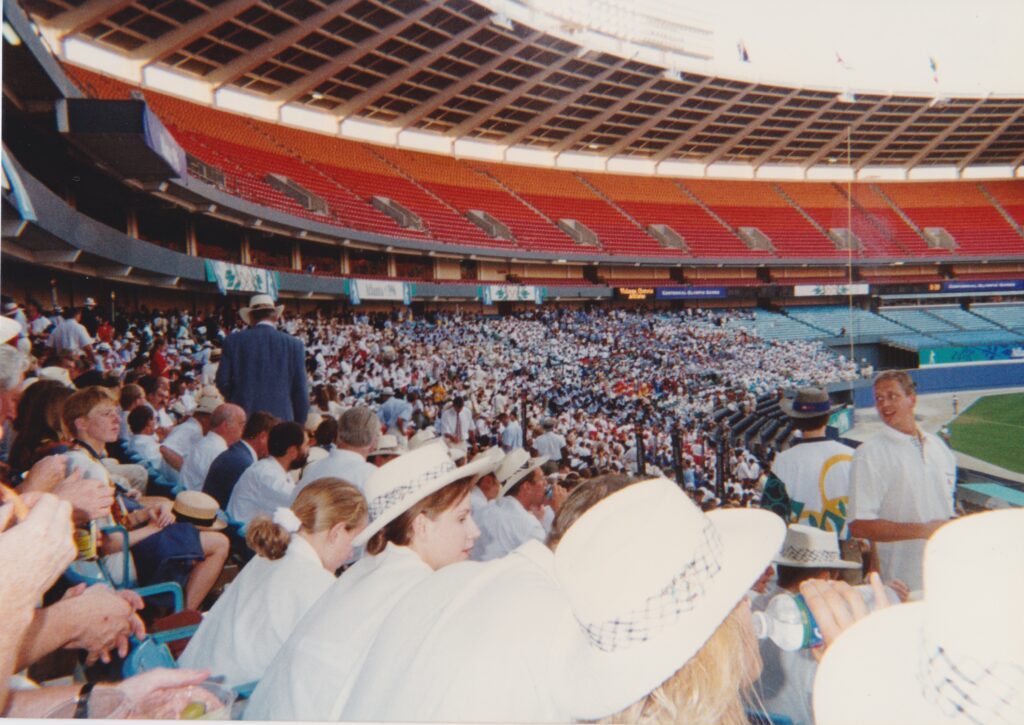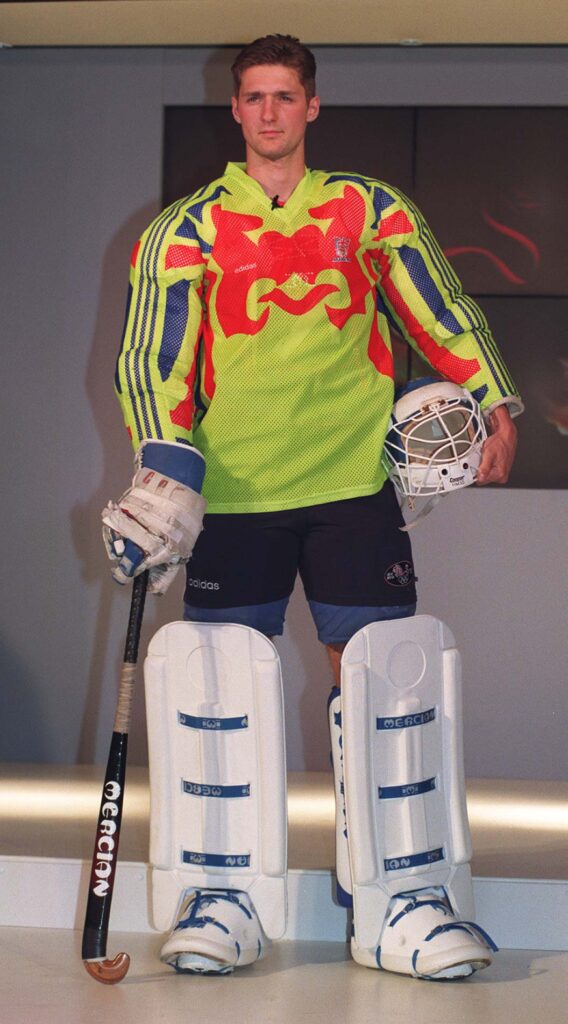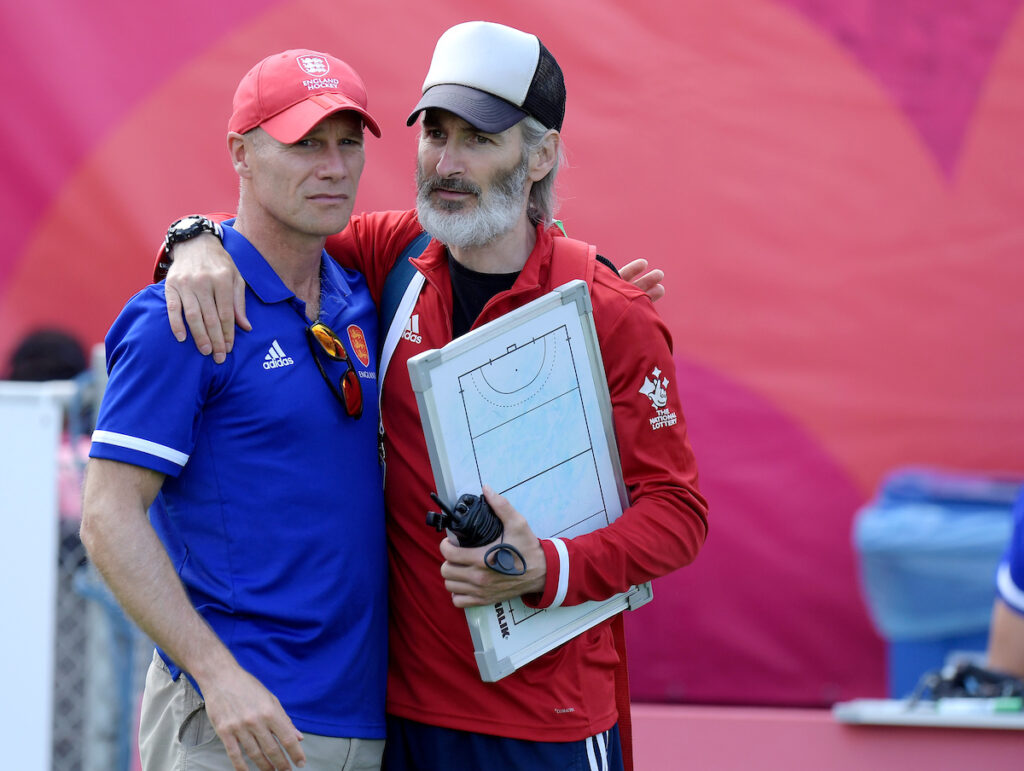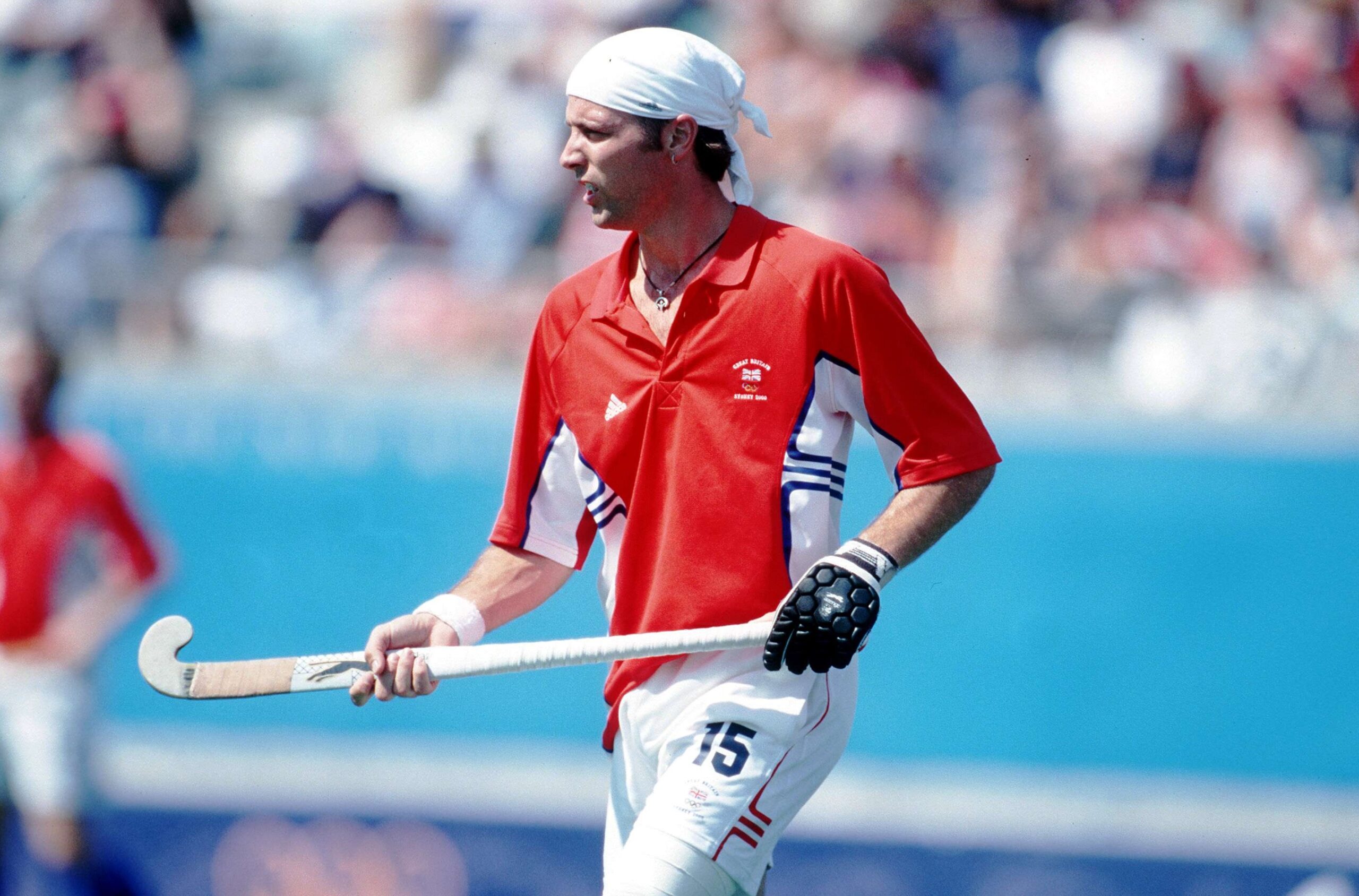Calum Giles continues the unique and unrivalled experiences of playing for Great Britain hockey at an Olympic Games in the final part of a brilliant three-part travelogue. READ Part One | Part Two
I had been so enthralled with the events that unfolded over the last five to six hours, that I hadn’t contemplated tens of thousands of people who all had to leave at the same time.
We all assumed that as the athletes, we would have special transport, that the simple process of getting us back to our accommodation would be as easy as the system that got us there.
It wasn’t the case, there was a continuous line of buses that poured into the parking lots to take the athletes back to the Village, first come, first served. Given the ceremony finished past midnight and that some athletes would be competing in less than eight hours, boarding buses became a total free for all.
Team GB got completely split up in the massive crowds, Russell Garcia and I were now on our own and dependent on each other to work out how to survive the situation. The crowds hustled, pushed and shoved. Bus after bus swept in, opened its doors and the frantic rush to make it on started all over again.
As one bus had pulled in, the crowd had rushed forwards and squashed so tight that it actually picked Russell and I up, carrying us forward with it. Russell and I just looked at each other and burst out laughing.
The Olympic experience for an athlete inside the Village back then is nothing like it is now. We were in the centre of a huge tornado, everything was going mad on the outside, but in the middle of the storm, it was quiet. It was calm. We had no idea what was happening in the world. We had no internet back then, so we had literally no access to the outside world.
The TV we had in our accommodation was bizarre. It had a channel for every single camera that was in operation at the Olympic Games, but no commentary.
We didn’t know who was winning, who anyone was. We literally didn’t know anything other than what we were doing ourselves day to day or what was happening in our small world within the eye of the storm.

We didn’t know buses were getting lost taking athletes to events, meaning athletes literally arrived minutes before their events, or even to the wrong events. This ridiculous scenario happened because the organisers had used the military to drive them. People who didn’t know Atlanta and it’s complicated road system, at a time before GPS and Sat Navs were invented, 20-minute routes were sometimes taking 90 minutes.
Our results started well. We drew against Korea having taken the lead twice. I scored two goals from three corners. It was a frustrating result as we knew that both of Korea’s goals should not have stood, but this was before video referrals, and we had to live with it. Next up we played Holland, which we also drew 2-2. Russell scored a stroke; I then levelled the scores with a top right flick in the 65th minute. This was a great result and we felt good about salvaging a point so late into the game against the eventual winners.
Our next game was against Malaysia, this game also had several controversial moments in it as well. Malaysia scored a goal from a corner that hit the back stanchion and came straight back out, giving the impression the ball had hit the backboard. I scored a corner and John Shaw scored a classic John Shaw goal, John seemed to glide past the opposition defence into the top right of the circle and just finesse the ball into the bottom left corner with a clip hit, it was a joy to watch.
In 1996 the rules didn’t allow corners to be played after the final whistle. So, the management came up with a system for when there wasn’t going to be enough time to sub me on to complete the corner. The management recognised that if you wanted to sub a goalkeeper, the match had to be stopped in order make the change.
— Subscribe AD FREE to our brilliant coverage
We won a corner with 90 seconds left on the clock, we knew we could complete corners in less time than that, but the substitution card for Simon Mason went up and we asked the umpires to stop the game. However, Malaysia knew what they were doing and they surrounded the umpires to argue about the award of the corner, they knew that they could run the clock down and avoid facing one more corner.
Eventually the central timer clicked down to zero and the hooter signalled full time. Malaysia immediately stopped their protests, shook hands and all left the pitch. Great Britain just stood on the pitch in stunned silence, it was common practice to stop the clock with merely seconds left, especially if a side refused to get themselves ready for a corner. It was an extremely disappointing way to end the game for us and we felt robbed of an opportunity to take three points.
An official protest was registered, then quickly withdrawn, so we left the pitch and headed back to the Village. We faced South Africa next, which we won by a two-nil margin and meant that we could still make the semi-finals if we drew or beat our arch-rivals Australia.
We lost 2-0 which meant our medal hopes were dashed and we were now playing off against Pakistan, losing the game 2-1 and now faced India in the 7th-8th play-off match.
Minutes before the game was due to start, rainfall of biblical proportions hit, and the game was postponed for over half an hour due to the pitch flooding.
After some time, I headed out to the pitch with Danny Hall and Simon Mason. We had a Powerade bottle each and we started to try and pass to each other. The pitch was still too wet, so we had to undercut the ball to each other.
By accident one of us hit a Powerade bottle and knocked it over, the crowd cheered. The spectators were drenched due to the downpour and severely bored due to the delay, and were looking for entertainment, so we gave it to them. We chipped shots, flicked shots, knocked over bottles, Mase did some overhead kicks in his kickers and the place was loving it, huge cheers kept coming from the crowd and everyone was experiencing the “Olympic” spirit. It was awesome.
Eventually the game took place, I can’t be sure, but maybe the show we put on for everyone in the rain delay influenced the match to come, as the game was a hard fought and highly entertaining 4-3 result. Great Britain finished seventh. It was an anti-climax given, we were so close to making the top four, but sport can be cruel sometimes.
The competitive part of our Olympics was over, all that was left to do was enjoy the last few days before the closing ceremony.
As a team we went and watched Holland defeat Korea Spain in the hockey final, but the highlight actually came on the way home. I was with Danny Hall and his family, we had managed to all climb into a huge old school Taxi station wagon. As was the norm during the Olympics we got stuck in traffic. I can’t remember how this started but we started singing songs, the windows were down to help cope with the heat and one by one people stopped to sing with us.

Half an hour later, we had a crowd of more than 50 people singing Fast Car by Tracy Chapman with us. We put on our concert and people from all over the world were joined together as a collective, united as one, the epitome of the Olympic spirit.
The next few days were a blur of parties at the local nightclub that Team GB seemed to take over. I met some great people from other sports, from other countries, and I kept trying to take it all in. I was trying to work out how I had made it here; just a boy from a council estate, no hockey playing family, a bad boy who failed all of his exams at the local state school (due to a learning disorder I didn’t know I had).
And then I realised that it is true, if you want something bad enough, if you are prepared to work hard enough, if you are prepared to work through the really difficult times and not quit, you have a really good chance of achieving anything you put your mind to.
The last official event was the closing ceremony. I was looking forward to it, but with mixed feelings. It signalled the end, it would mean the end of a life where TV interviews were the norm, mixing with the world’s most incredible athletes at breakfast was standard and that this dream I had worked so hard for, for so many years, was over.
We were seated in a section for all of the global athletes. I remember we were seated near Canada and that the programmes we had under our seats were ripped up, scrunched into balls and used as paper bombs. Canada would count to three and then send a barrage of hundreds of missiles our way. Team GB would shelter from the incoming barrage, then start our own count of three and return our own counter offensive. All these world class athletes, acting like school children when a substitute teacher leaves the room, were awesome.
Atlanta did themselves proud and they finished in style. As tradition requires, they included a segment where they celebrated Sydney as the next hosts of the summer Olympics.

However, what happened next was the best part of the whole night.
I don’t know if it was supposed to happen or if it was a crowd surge, but the athletes all poured from the stands into the arena. We wandered around taking everything in, the stadium was once again at full capacity. The music was blaring, the crowd were cheering, and all hell was letting loose.
Athletes were engaging with the crowd, having pictures taken, signing autographs. Athletes were having pictures taken with each other, with their competitors, with the performers of the ceremony itself. People were carrying each other around on their shoulders, dancing, partying, it was a freestyle party of an Olympic standard.
I remember being under an enormous flag that was still part of the performance. I remember stuffing loads of paper, ribbons, flags into the gap at the bottom of an inflatable wacky arm flailing tube man, then standing back to watch it blast whatever I had stuffed into his legs blast out of his arms, 50 foot above me. And laughing as it rained down on the crowd below.
We were in full on oblivious party mode, that was until the most sombre and sobering part of the evening. We all stood and watched as the Olympic flame was extinguished, it was a very significant moment, this one act had an extremely significant meaning.
It signified that everything we had sacrificed for years was now over. Worthless. Our Olympic selection was complete.
All the hard work, the blood, the sweat and tears that were spilled on hockey pitches and gym floors all over the world, that had earned us the right to participate in those games, was now over.
If we wanted to do it all over again at the next Olympics, it meant having to do it all over again. Four years of pain, stress, heartache, missed weddings, selection worries. Boarding flights, missing loved ones, special moments in life.
But when you compete in an Olympics, when you experience the opening and closing ceremony and all the amazing things that come with it, I can promise you this, it is worth every single second of pain, sacrifice and heartache to call yourself an Olympian.
It is incredibly hard to become an Olympian. It is a life choice and something you can only achieve with your actions, every single day, it can never be achieved with just words.
As the legends of 1988 said back at Bisham Abbey that night, “You can’t describe the Olympics in words, you can only experience it.”
Calum Giles runs Stickwise, home of accessible premier field hockey camps for children aged 5-14




